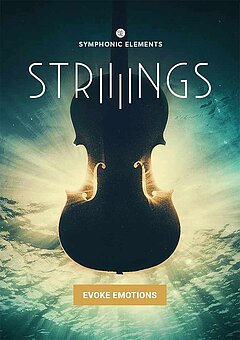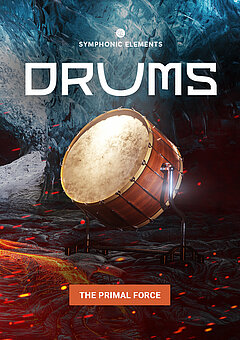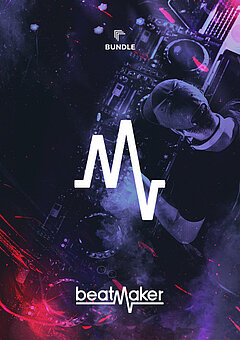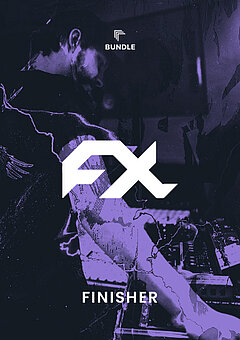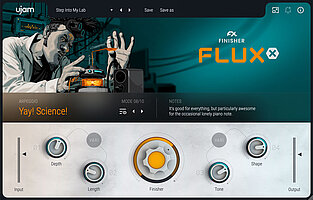Artist Spotlight: Michael Baugh
A look behind the scenes at the British composer & guitarist’s influences, career and how he found his sound.
JANUARY 29TH, 2023
Becoming a media composer
If you aspire to be a media composer — that is, to write and produce musical scores for video games, film, TV or any other visual medium — you’ll want to pay close attention to Michael Baugh. His instrumental guitar orchestrations and eclectic style include work with Guy Michelmore, Tina Guo, Rusanda Panfili, Anna Sentina and many other great instrumentalists, composers, producers and more. Industry greats like Hans Zimmer have also already taken notice of him. In this article we’ll be touching on how he achieves his sound and how to navigate the world of client work in the music industry.
For media composers, the ability to “do the job” is the first barrier to entry — it doesn’t matter how creative, unique or innovative you are unless you can articulate exactly what clients want and consistently deliver it at release-ready quality. This means:
- Building a highly-attuned ear (which tools like SoundGym can be a huge help with)
- Creating and updating templates for all types of work you do — avoid re-doing work every time you open up a session by saving commonly used instruments, routings, track groupings, etc.
- Understanding emotional and dramatic context and being able to articulate it through music (this is THE core job of all media composers)
A strong setup with a few core plugins you know inside out and great communication skills will take you a long way here. Once you take care of all the essential housekeeping though, what sets you apart from other composers and producers is having your own unique sound. That’s straightforward enough if you’re a producer and have total creative control over your own work, but what about when it comes to working with clients? Your style still matters — after all, it’s likely part of the reason you were hired — but the client also has a vision for how their project should sound. So how do you reconcile these two?
We asked Michael what defines his sound, and his slightly cheeky answer is a great reference for any aspiring composer: “I am like a polaroid picture: It has just come out of the camera and you’re shaking it to help the image develop... my sound is defined by my goals and the brief I’ve been given.” Knowing how to build full songs from nothing but a project brief and a few musical references is key to long-term success in the industry, especially with tight deadlines being the norm.
Defining a unique sound
Where does his signature sound come from? Michael got into writing at 17, his main inspirations behind Sonata Arctica, Joe Satriani, Metallica, Iron Maiden and UFO, but it was his introduction to the music of Andy Timmons that sealed the deal. At first that meant writing, playing and moving people with his music ... until he met Nick Johnston, who inspired him to begin releasing CDs, vinyls, and put his music on streaming platforms.
This built the bed of experience he used to form his style, but making records is only one aspect of his musical career; he’s also been busy working on feature films, short films, documentaries, shows and trailers — all in a day’s work for a media composer! If you decide to go into composing for visual media, this is a small look into the life you can expect. You’ll often be tasked with writing for a wide variety of different projects, sometimes all at the same time.
Your ability to field a variety of different projects will make it far easier to find work; some people will tell you to specialize and define the work you take carefully so that people think of you when the right opportunities come up, and there’s certainly truth to this ... but the real value of niching comes from your sound and your ability to apply it to a range of different mediums. So make sure to define your strengths through your work, but be open to applying it in many different forms!
Using plugins building a workflow
At UJAM, we focus heavily on usability and speed, so that whether you’re bringing a new song to life or burning the midnight oil delivering music to clients, you can focus on your process while spending minimal time making technology work for you. When Michael starts a project, one of the first things he focuses on is creating on the backbone of his initial idea — Beatmakers help him quickly find a groove he can add to his session quickly and build on top of, especially coupled by Virtual Bassists.
To flesh out full scores quickly, he turns to DRUMS and STRIIIINGS to help him complete complex projects quickly, which are designed to create a huge orchestral sound (a common request from clients!) with just a few notes. From there, his selection of Finisher multi-effects allows him to easily play around with sound design elements and break a few rules along the way. And when it comes time for something more electronic or dance-heavy? It’s time to break out Usynth Euphoria:
Of course, every professional media composer has their desert island plugin — we asked Michael what his would be out of UJAM’s entire collection, and he didn’t hesitate: STRIIIINGS! He cited its ability to assist with tight deadlines, and with so many pre-built phrases available, it’s easy to see why. Speed is essential for professional composers as the demands of the job are so tight, but pro quality is equally important when every aspect of the production rests on your shoulders.
Wrapping up
Michael Baugh’s style and journey are unique, but if you get into composing full time, you’ll likely see many similarities in your own journey. How you express yourself through your music, how you translate that to serving the needs of clients, and the technology you use to do so will all help set you apart and make a space for yourself in the industry. Solidify your skills on the gear you already have and keep an eye out for gaps in your setup to update and invest in when you’re ready.
And if you want to hear some of Michael’s work, you can check it out on his website.
Stay up to date
Sign up and we’ll send you an e-mail with product news and helpful stuff every now and then. You may unsubscribe at any time.
Defy Limits
We develop software solutions that enable people to create, consume and interact with music.
